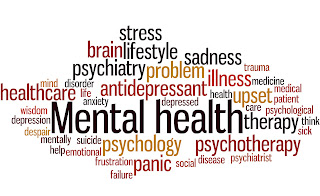Things To Look Out For When Using Mental Health Apps During Pandemic
At a
time when there’s an app for this and an app for that, it comes as no surprise
that there is now an explosion of mental health apps available. At first
glance, this might appear to be a positive, one more way that technology can
streamline our lives. But when it comes to our mental health, leaning on an
online app may not only be ineffective, but could also present some significant
downsides.
Some may argue that the availability of a mobile mental health
app is beneficial for the individual who lives in a region where mental health
services are difficult to locate. It could be beneficial speaking with a mental
health professional online given the circumstances we are living today due to
the pandemic. Additionally, a mental health app may be a tool that someone
could use who may otherwise never seek psychiatric treatment. While these
points have some merit, the next question should be, “What exactly is the
individual actually receiving through
the app?”
If a mental health practitioner has vetted a couple of reliable
apps to offer patients as adjunctive tools to access between therapy
appointments, say mindfulness apps or guided meditation, these digital mental
health apps can be useful. But individuals who are not being cared for by a
licensed therapist risk being exposed to misinformation when using an app that
they just happen upon in the app store. Some of the identified problems with
mental health apps include:
- Developed by individuals who are not practicing, licensed therapists or psychiatrists, and have little or no experience in the mental health field
- The apps are not regulated by the American Psychiatric Association or the FDA
- Individuals have been misdiagnosed or over diagnosed with the apps
The apps are completely unregulated at present, although the
American Psychiatric Association is considering providing standards eventually.
For now, the APA has issued guidelines for professionals to evaluate mental health
apps for patients.
These digital tools generally offer grandiose claims using
scientific language and supporting statements, while providing no real
high-quality evidence, certification, or accreditation. Coders have discovered
a goldmine by developing mental health apps for the unwitting consumer that can
actually cause harm rather than helping them.
Alternatively,
certified and regulated mental health treatment centers have become a safe-hold
for those hoping to find additional support and treatment in a safe and
effective way. While mental health apps are unregulated and utilize unknown
methods, a mental health treatment center will use proper health and safety
measures while employing only the most effective and proven treatment
techniques.
Dr. Priya Chaudhri, CEO, Elevation Behavioral Health



